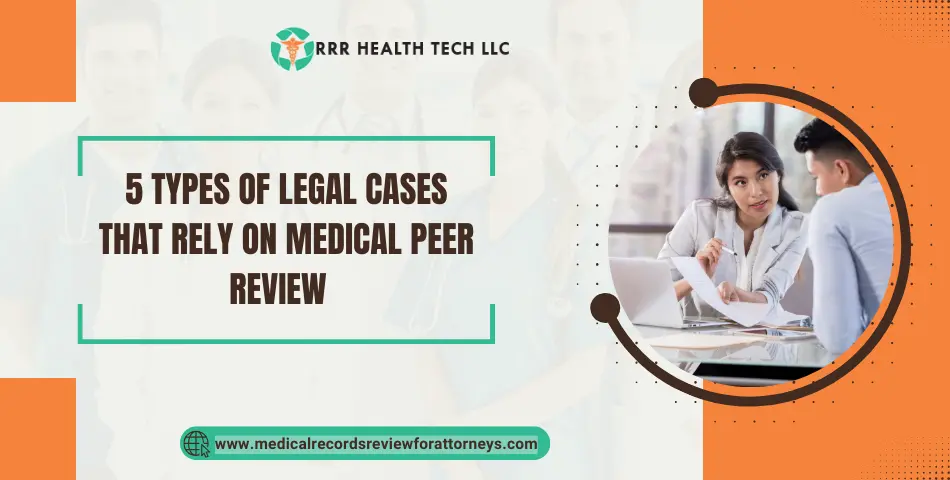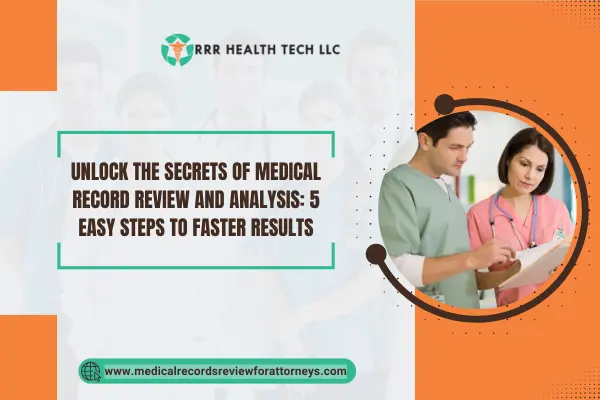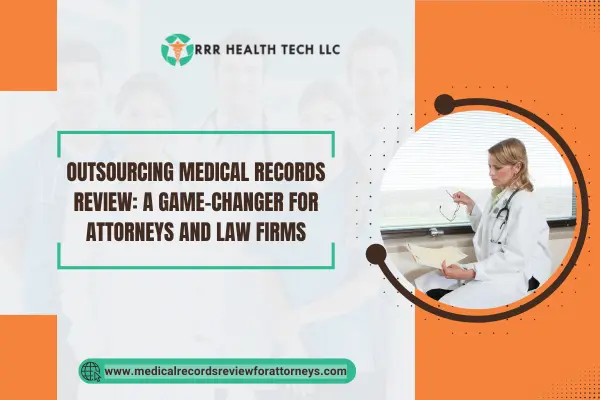
One of the most crucial aspects of the legal world is the medical peer review process as it gives credible points of view on various medical facts in different cases. Lawyers, for instance, benefit from the evaluation of medical records and summaries by professionals in peer review which augments their case. Also, identifying medical cases that require legal reviews contributes to fair outcomes and the justice system.
This process not only aids the plaintiffs by providing accurate summaries of records but also assists in protecting the professional level of conduct in trials. Read on how such revelations are applicable in other appeals.
1. Medical Malpractice Claims
Medical malpractice lawsuits have their foundations in the breach of a certain standard of medical care. In these circumstances, it is important to ascertain if a certain healthcare practitioner has acted in a manner consistent with what is considered the norm in the medical profession.
It is here that the activities of medical peers become constructive, as they provide their expert views on whether it was a case of negligence. Following this procedure:
- Evaluation: Evaluation of medical documents, treatment records, and preparations for depositions to determine conformity to the expected standards of quality.
- Expert Testimony: Giving expert opinion during a hearing.
- Case Organization: Organizing and retrieving documentation such as organizational infographics and FAQs in a consistent manner.
Thus, the institution of medical peer review in a particular field also plays an important role in determining the liability and rebuttal against baseless litigations. However, the fairness of this procedure is greatly dependent on compliance with the rules of professional ethics of the legal practitioners participating in these cases.
2. Personal Injury Lawsuits
Most personal injury cases revolve around the plaintiff establishing the link between the actions of the defendant and the injuries that they have suffered. It is an important link because it forms the grounds upon which any tort of negligence or liability will be claimed.
The Role of Medical Peer Review
Medical peer review however presents a unique opportunity as it enables addressing the subject of causation from a disinterested perspective. By a detailed examination of a patient’s medical record, peer reviews can address the question of whether the sustained injuries are consistent with the requisite standard of care. Such an approach very much strengthens the claims made and assists in both insurance and trial processes.
Benefits of Medical Peer Review in Personal Injury Cases
Peer review in medicine makes it possible to guarantee that such instances are meritorious and ensures that just results are achieved for the accusers. A few of these include the following:
- Peer reviews enable first examining the medical elements of the case by excluding the issues of the treating physicians. This enables an impartial view of things.
- Doctors who specialize in each field assist claimants by providing professional insights into the nature of injuries, the cause of the injuries, and the nature of the impact of the injuries which are of great importance in negotiations for settlements or decisions by the courts.
- In the course of their work, healthcare providers are expected to act within the framework of certain measures.
- Medical Peer Review ensures that appropriate measures have been taken, relative to the claims made, thereby clarifying or justifying if negligence exists in the case in question.
In some instances, early or out-of-court settlements may ensue after it is clear, by way of peer review that cases do exist. This saves both parties the cost and time wasted while engaging in protractive and lengthy litigation matters.
Peer review conducted in such cases will likely serve the purposes of IV or even III-class medical practitioners. Treating physicians within the peer review process ensures sound medical thinking prevails in the cases presented before them. These types of reviews have been found to conform to good clinical practice, hence provisions made, and arguments made towards validation and reliability further substantiate the arguments that such reviews should be allowed in courts.
3. Workers’ Compensation Cases
Medical peer review has become quite useful in the determination of the legitimacy of workers’ compensation cases. While assisting as an expert witness, and giving objective evaluation, it guards against the filing of frivolous claims and noncompliance with the law. Usually in reviews, considerable time is devoted to reviewing the medical records, summaries, and histories of the patients.
Key roles of medical peer review in these cases:
- Evaluation of Claim Validity: Such peer reviews are often necessary and routinely determine medico-legal documentation as to whether an injury/illness was acquired at work or not.
- Rehabilitation Benefits: They also determine what would be the feasible methods of treatment and what would be the feasible possibilities of rehabilitation to achieve justice for the injured worker.
Such educations understandably assist legal practitioners involved in vital areas of trial preparation, depositions, and even expert evidence in the resort to workers’ compensation law.
4. Disability Claims
Because of the nature of certain disability claims which may not be readily observable or quantifiable, there is a severe and pervasive concern regarding the veracity of such claims. This poses problems in guaranteeing that competent claims will be paid out while incompetent or fraudulent claims are disbursed. In this regard, the medical peer review is invoked as a systematic process of scrutinizing the medical facts and documents to confirm the claim.
Because they are evidence-based, peer reviews help to identify bogus cases from true ones. With this procedure, disability benefits are never obtained fraudulently, and the rights of the claimants are well protected.
5. Product Liability Cases
In many instances where the liability of a product is in question, the issue often revolves around the burden of proving responsibility for the claimed product as the cause of his/her injury. It is imperative to prove such relationships in all instances that relate to a case to ascertain liability and compensation.
Medical peer review in this case emerges as an invaluable tool. It is concerned with scientific proof as well as professional testimony portraying the nature of the defect and the details of the injuries sustained, thereby supporting the claims. Such parts of a rigorous process help attorneys build up their cases and are well-prepared for the trial and deposition; the chronological arrangement of the cases and the medical history of the case are correct and assist in achieving the right results in product liability cases.
Conclusion
Emphasizing medical peer review in legal decisions ensures accountability and professional practice. This tool substantiates the credibility and the level of assertions, providing clarity courtesy of evaluations by qualified professionals and summaries of objective evidence. Lawyers are equipped with accurately and completely prepared case files including chronologies of charts and records of medical history.
Knowing which types of legal cases are compatible with medical peer review helps, for instance, those involving medical malpractice, personal injury, worker’s compensation, disability, or even product liability cases, in making appropriate choices. Reaching out to professionals who engage in such assessments can also be fundamental in trying to strengthen such cases and achieving just solutions within the legal system.
FAQs (Frequently Asked Questions)
What is medical peer review and why is it important in legal cases?
Medical peer review is the process of appraisal whereby professionals in the health field assess the work, skills, or performance of other professionals in that same field, to assure and enforce quality and standard. It is in legal practice, an expert input which assists in ascertaining the facts of the case, arguing for just results, and protecting the sanctity of the legal process.
How does medical peer review assist in medical malpractice claims?
In medical malpractice claims, peer review plays a crucial role in establishing whether there was a breach of the standard of care or the so-called “accepted level of practice”. It gives an opinion as to whether due diligence was exercised by a healthcare provider, or due procedures were duly followed.
Why is medical peer review significant for personal injury lawsuits?
In most personal injury cases, most personal injury lawsuits seek to establish a linkage between the actions of the defendant’s actions and the plaintiff’s injuries. Medical peer review can be linked to this assessment and provide an objective basis of causation, which can be useful in firming up the plaintiff’s assertions.
Maximize Case Accuracy with Our Medical Peer Review Services
In each legal case, we offer objective and expert analysis of medical details through our medical peer review, helping legal teams strengthen their cases, ensure accuracy, and support fair and informed decisions. As a professional medical record review company, we assist insurance attorneys by delivering accurate reviews and insights into the treatments relevant to the cases they manage.


